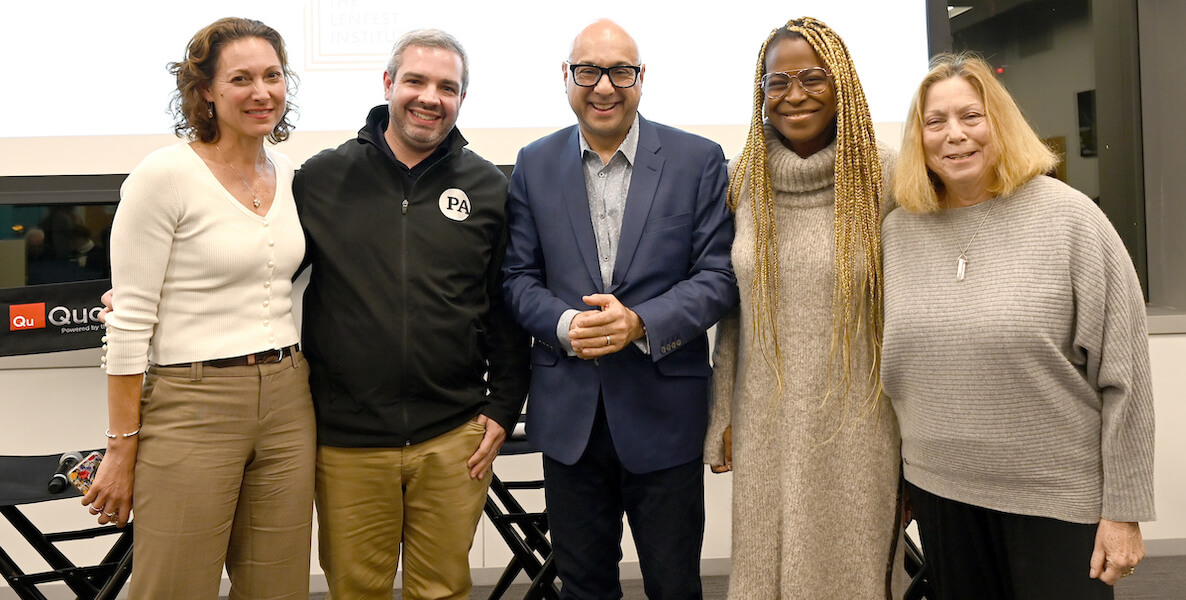We swear we didn’t put them up to it, in some shameless, self-serving play to rally folks behind the mission of The Citizen. But if there’s one insight that rang most loudly at the kickoff event for the 5th annual Ideas We Should Steal Festival presented by Comcast NBCUniversal on Wednesday night, it was this: Our country — our democracy — needs local journalism more than ever.
This message didn’t just come from anyone, either. It came from a panel of journalism all-stars. Erinn Haines, the truth telling editor-at-large of The 19th*, shared the stage with Jill Abramson, legendary former executive editor (and first woman executive editor) of The New York Times, Emily Bazelon, author and staff writer for The New York Times Magazine, and community-first, government watchdog Chris Baxter, executive director/editor-in-chief of Spotlight PA. The moderator: Ali Velshi, a Citizen board member, and MSNBC host.
The Lenfest Institute for Journalism supported the free event, which took place at University City Science Center’s Quorum community space.
The takeaway
The modern public’s distrust of the media comes down to their distrust of the journalists, often from national news outlets, who parachute into communities, then leave just as quickly to write headlines that generate clicks and social media hits. But when local journalism has the financial support and community presence to flourish? So too does trust — and change.
“[People’s trust in the media] is at an all-time low,” Abramson acknowledged, calling the trend concerning. That said, she believes some of the best journalism is being conducted precisely at this moment in time. “There’s more quality journalism than ever before. Every morning, I’m overwhelmed with how many stories I want to read,” she said.
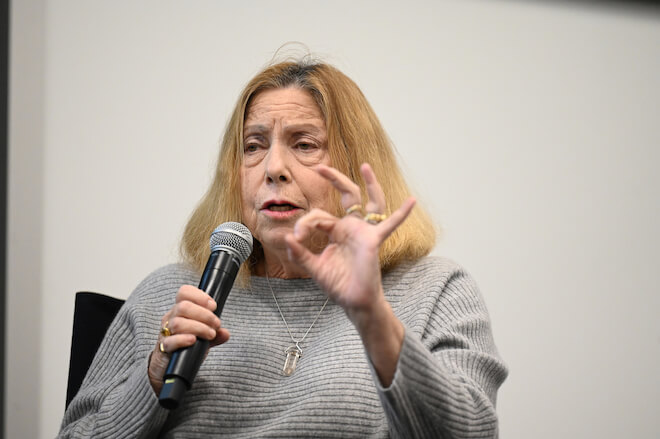
But she pointed to a serious divide: “The thing that worries me the most is how the fragmentation of the audience is fueling the distrust and the difficulty of establishing any sense of a common truth.” She acknowledged that social media is not the sole culprit to blame for that fragmentation, but it has accelerated it greatly.
Abramson, like her co-panelists, believe there are things we can all do better “to reestablish a bond” between journalists and their audiences. Here, some solutions:
Diversify who’s telling the news.
As Haines sagely pointed out, for too long, BIPOC journalists have not been the gatekeepers of our news. “Their lived experience was seen as a liability and not an asset,” she said. Starting the 19th*, she said, was about trying to change that narrative.
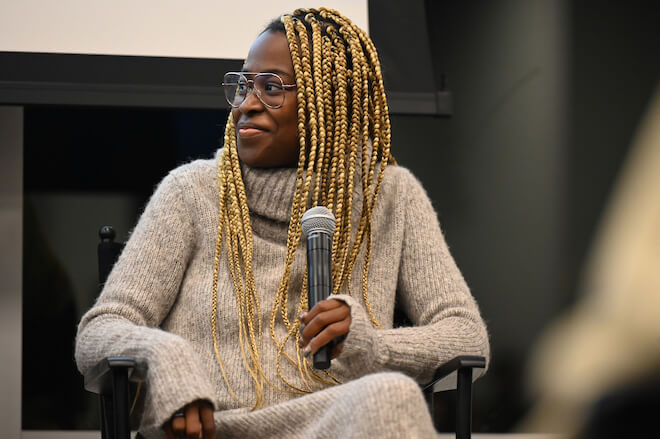
“There’s a reason [marginalized folks] don’t trust us. They haven’t felt seen and heard by us, as journalists,” she said. “At the end of the day we are supposed to be leaving behind the honest record of who and where we are as a country. If you are ignoring folks, that is a form of misinformation and not the best journalism.” Democracy, and with it journalism, needs to expand – not contract
Support local journalism.
Baxter made the case that the crisis in journalism is a local crisis. “We need to return journalism back home, to the hands of communities — not hedge funds — to be responsible to the people,” he said. He believes it’s critical for local journalists to form relationships with the community they cover, and equally important for journalists to provide a foundation of civic information to their readers to be able to understand government processes.
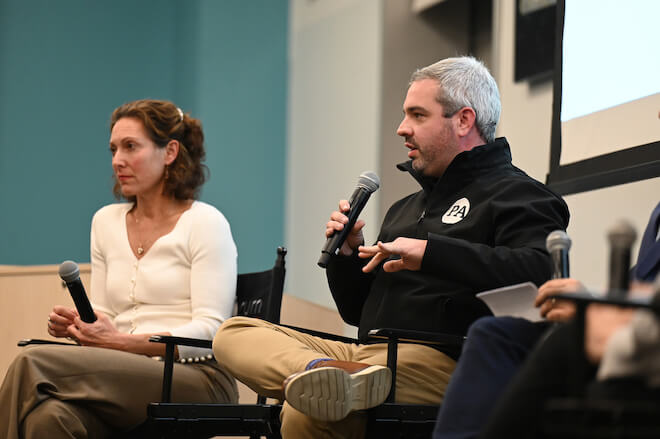
Points of confusion are opportunities for ill-intentioned political operators, he said. But local journalism can play the role of interrupting that opportunity by eliminating confusion and teaching readers what they need to know — whether it’s about mail-in ballots, or any other aspect of our society.
That’s the role of Spotlight PA, a nonprofit news outlet founded by The Inquirer, Pittsburgh Post-Gazette and PennLive/The Patriot-News, that focuses on the happening in Harrisburg. “State legislatures and school boards are now incubators for our democracy. If the conversation stays national [only],” he said, “we’re going to miss the whole kit and caboodle.”
Know your funders.
Unbeknownst to most audience members, deep pockets — including from the conservative and powerful Koch brothers — are increasingly funding polarizing media. If audience members knew where media funding was coming from, and the agendas behind that money, they’d be less likely to trust those sources. At the same time, media outlets are struggling for revenue — especially at the local level. Perhaps, the panelists wondered, the solution is publicly-funded media — as in Europe and Canada — or more nonprofit media (ahem, such as The Citizen) funded by philanthropy.
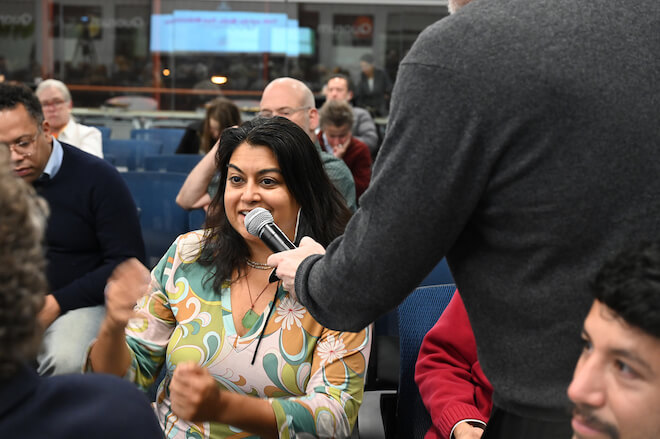
We need more media literacy.
A lively audience Q&A fueled a conversation about the sad state of civics education in our country – along with the need to teach students skills in media literacy. And in what was perhaps the most profound message of the night, Haines laid bare the truth that “Journalism has to tell the truth about who we are, and what our relationship is to our country.” Schools, all agreed, are a beautiful place to start these conversations. Also, all agreed: Truth is the thing we need to protect.
Because if, right now, our democracy and media are broken? It just may be up to the next generation of journalists to do better than all of us.
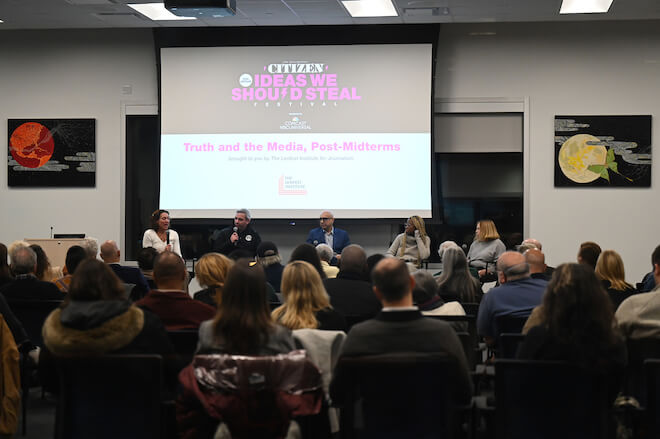
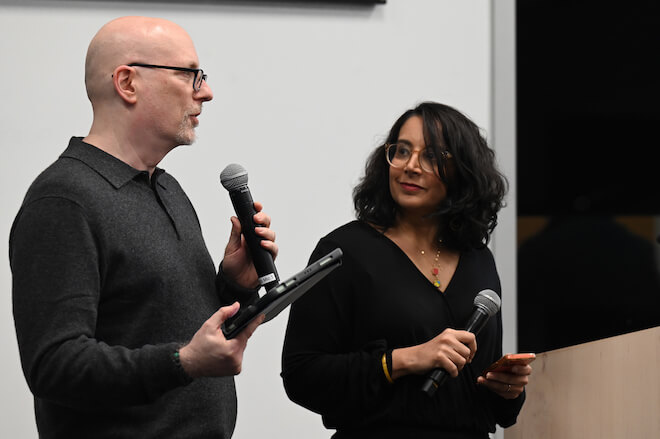
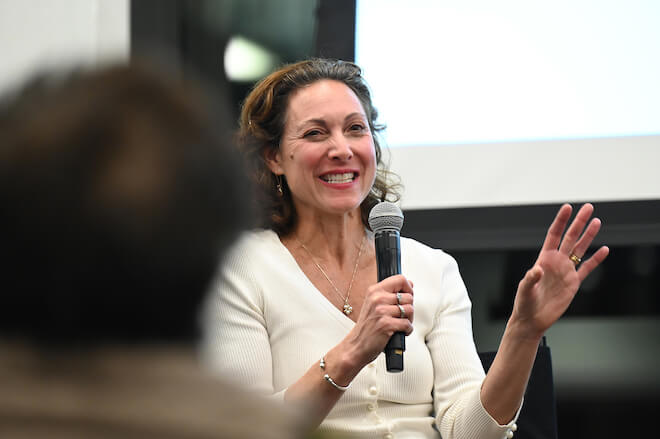
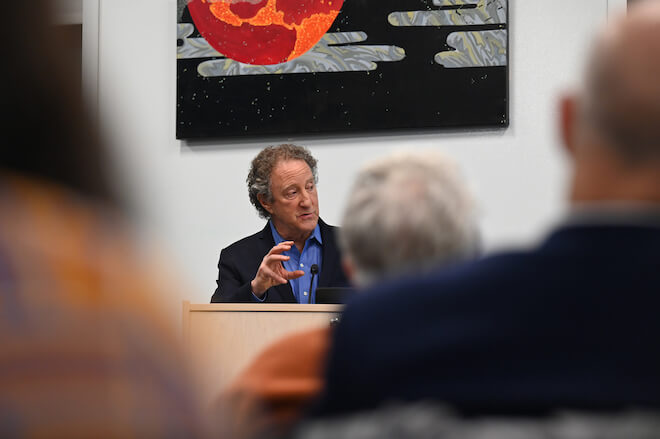
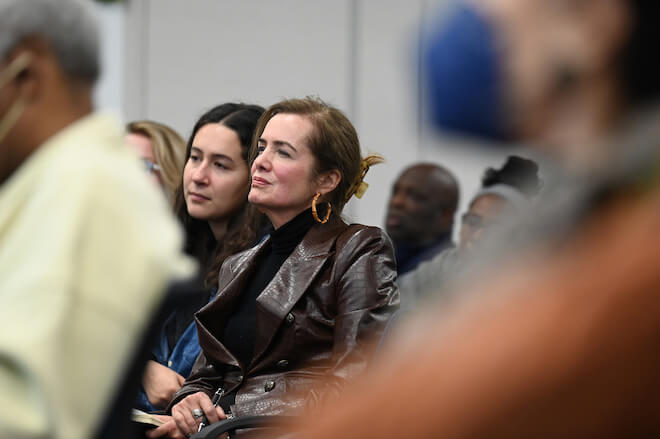
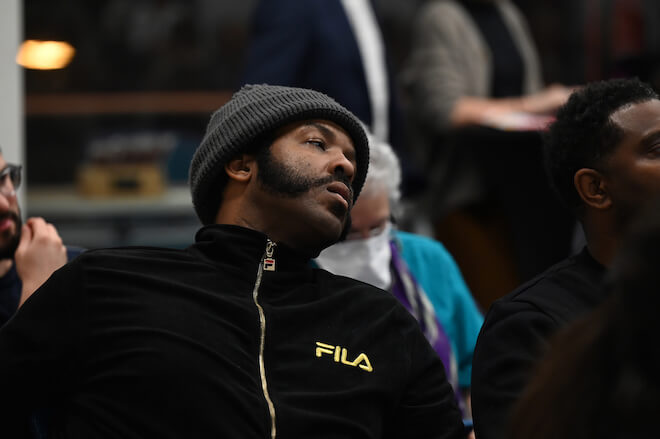
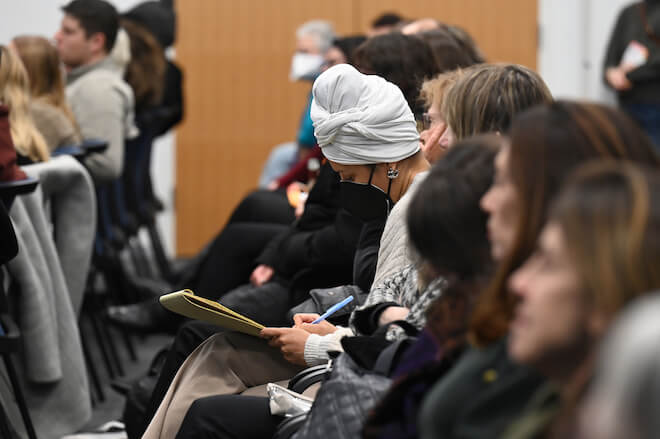
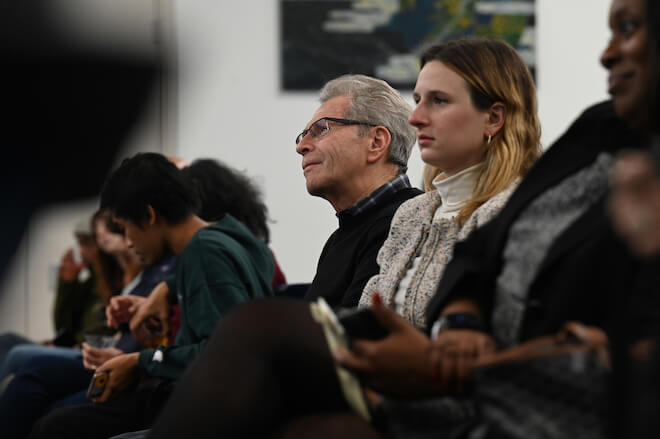
![]() MORE ON DEMOCRACY AND THE MEDIA FROM THE CITIZEN
MORE ON DEMOCRACY AND THE MEDIA FROM THE CITIZEN



